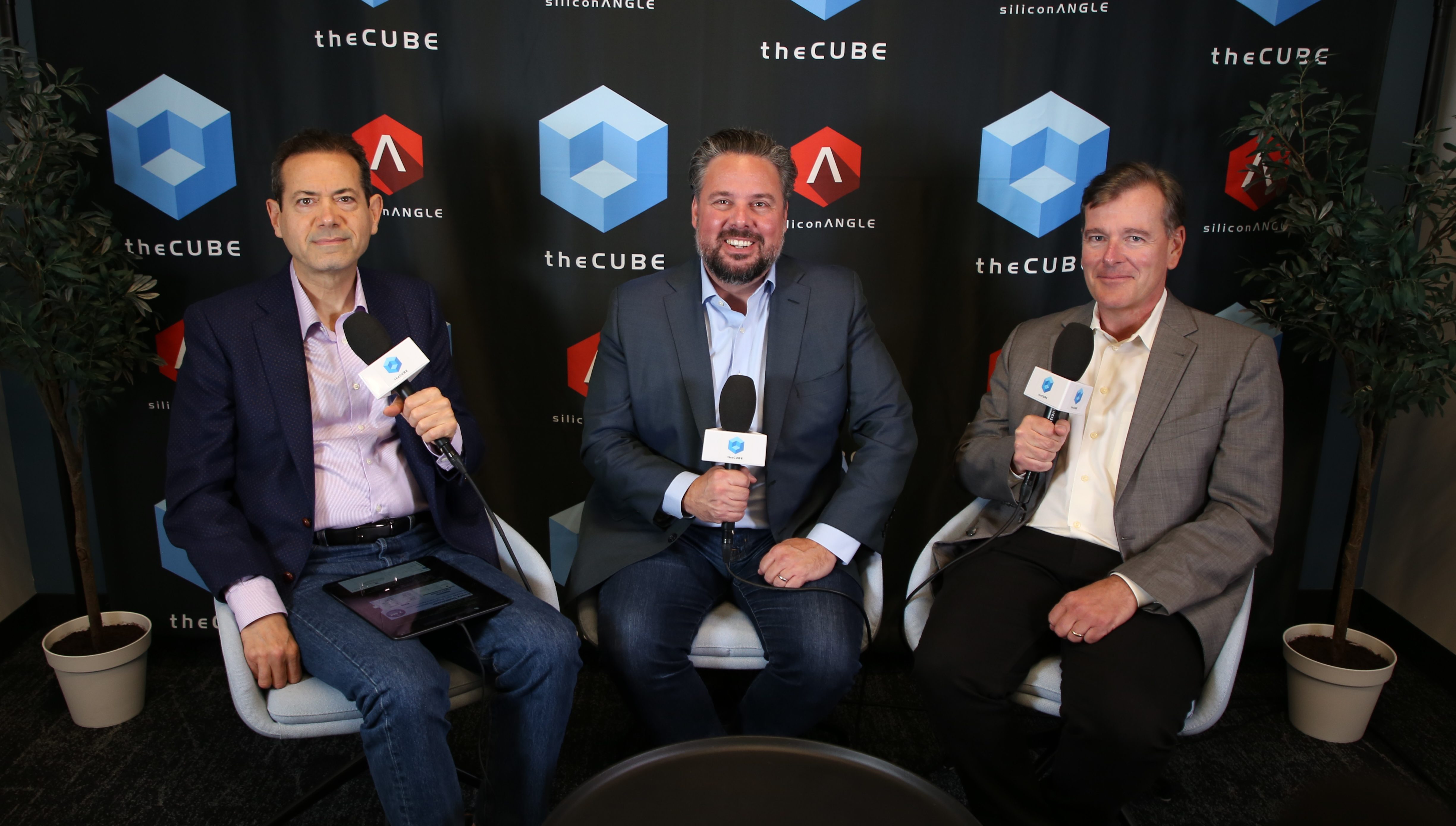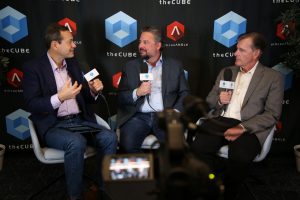 AI
AI
 AI
AI
 AI
AI
Salesforce Inc. is at a crucial turning point. Beyond customer relationship management and other business-related software solutions, the company is navigating a path to infuse business processes with cutting-edge agentic AI.

George Gilbert, Rob Strechay and Christophe Bertrand provide exclusive analysis at Dreamforce 2024.
“I think there’s a reason why [CEO] Marc Benioff said this is the most important Dreamforce ever,” said George Gilbert (pictured, left), principal analyst at theCUBE. “It’s very hard to turn a platform company into an application company or vice versa. If they pull this off, they’ll be one of the largest to have ever done it and they’ll transform the company. It’s not just the Customer 360, but anything that customers choose to connect to the Customer 360 that can activate … an agent. Salesforce becomes the platform on which others can build agents.”
Gilbert was joined by fellow theCUBE Research analysts Christophe Bertrand (right) and Rob Strechay (middle) for an analyst wrap-up segment at Dreamforce, during an exclusive broadcast on theCUBE, SiliconANGLE Media’s livestreaming studio. They discussed the key takeaways from the event, the Salesforce platform’s evolution and how AI is poised to reshape the business landscape.
Salesforce’s vision is to turn its vast data resources into actionable insights through its Customer 360 platform. This goes beyond managing customer relationships — it’s about harnessing data to activate AI agents that can automate complex business processes, according to theCUBE Research analysts. The integration of agentic AI signals a new era where Salesforce becomes a springboard for companies to build customized, AI-enhanced business tools.
“I think if they can pull this off, where it becomes a more dynamic app platform, more personalized, really focused on those processes all the way back to the data, it’s going to be a clear win for them — especially where they’ve abstracted and they’re not a cloud,” Strechay said. “They’re sitting on cloud; they’re sitting on IaaS. I think that’s a huge win for them from that perspective.”
AI agents can essentially create an “org chart” of microservices that can think and act independently, calling on human intervention only when necessary, according to Gilbert. This division of labor allows companies to capture expertise in routine functions while enabling humans to focus on more complex decision-making. However, the success of these AI agents is contingent on their access to reliable data.
“Agents can call on other agents, and when they’re not confident of a step in a process or an outcome, they can then bounce up to an inbox to a human to supervise them,” Gilbert said. “The point of all this isn’t to eliminate humans so much as to capture expertise for the easy jobs and processes.”
Dreamforce also brought renewed focus on the role of developers in this AI-driven future. Salesforce’s low-code tools are at the heart of this strategy, allowing companies to customize AI agents and business processes easily. With these tools, citizen developers can build and train agents using simple language or by setting specific goals, theCUBE Research analysts pointed out.
“It’s always going to be about good data — there’s no doubt about it,” Bertrand said. “That’s the part, to me, that is the constant. I think number two is how you train agents. How do you train humans to train agents and vice versa? I think we will see in the future how things evolve, but I do believe that while there will be some entry-level jobs that may be eliminated.”
Here’s the complete video interview, part of SiliconANGLE’s and theCUBE Research’s coverage of Dreamforce 2024:
Support our mission to keep content open and free by engaging with theCUBE community. Join theCUBE’s Alumni Trust Network, where technology leaders connect, share intelligence and create opportunities.
Founded by tech visionaries John Furrier and Dave Vellante, SiliconANGLE Media has built a dynamic ecosystem of industry-leading digital media brands that reach 15+ million elite tech professionals. Our new proprietary theCUBE AI Video Cloud is breaking ground in audience interaction, leveraging theCUBEai.com neural network to help technology companies make data-driven decisions and stay at the forefront of industry conversations.